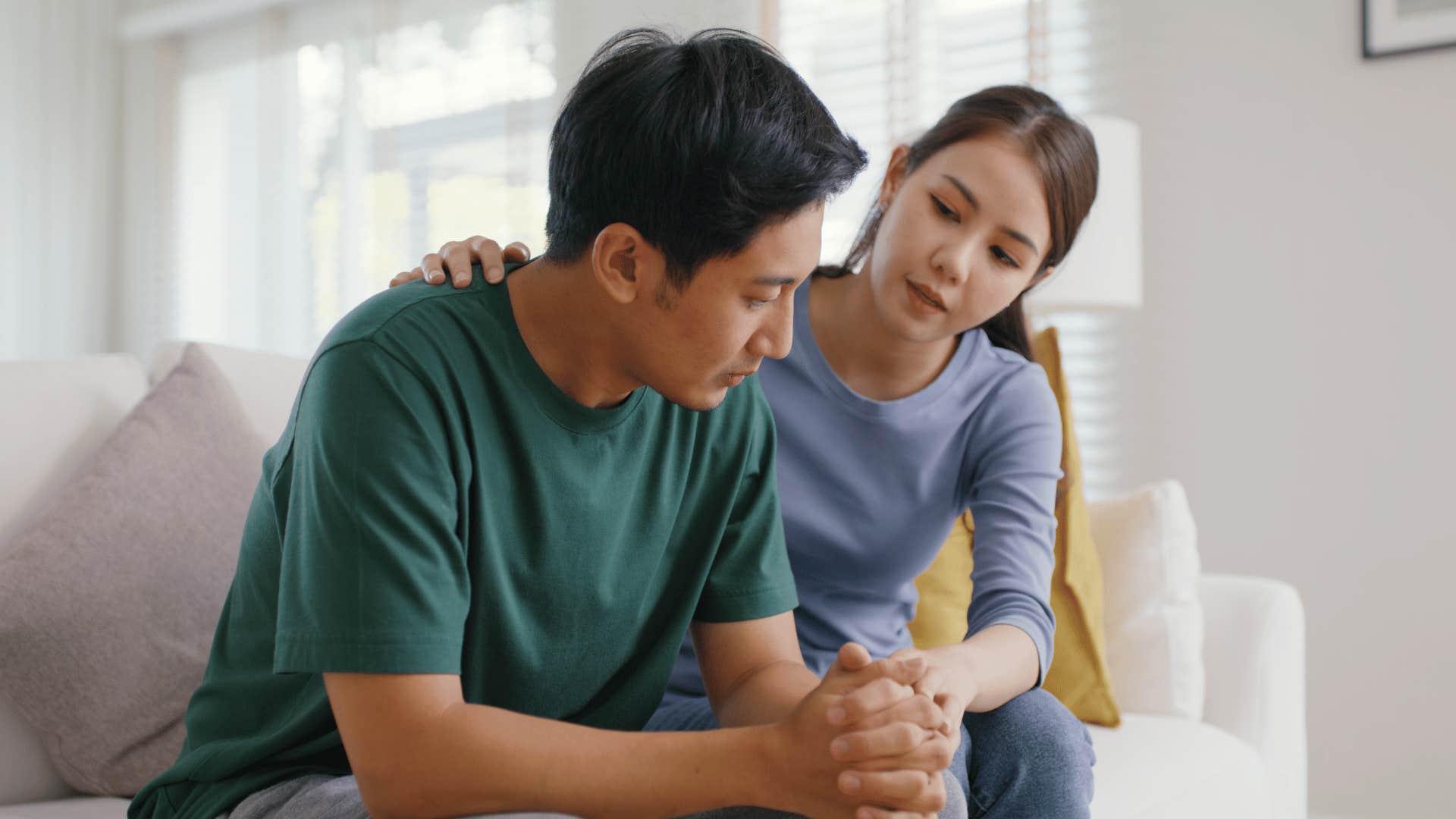7 Unfair Double Standards That Take A Deep Toll On Both Men And Women
Double standards and enforced gender roles harm everyone.
 Peopleimages.com - YuriArcurs | Canva
Peopleimages.com - YuriArcurs | Canva American culture does have its share of biases that affect women, minorities, and LGBT people, and it can sometimes overshadow the harmful biases that also exist against men. While these double standards may appear straightforward at first glance, the issues behind them are intricate and have deep implications for everyone.
They shape the ways men are encouraged to nurture their children, the support we’re expected to offer our partners, how we choose to spend our time, and the extent to which we can express our emotions openly. There have always been rules by which American men are expected to behave like "real men." These rules are referred to as "Living in the Man Box."
Charlie Glickman explains it beautifully, "One of the primary reasons that boys and men gay-bash and bully queers is that they need to perform masculinity in order to show the world that they’re in the Box. And since very few guys can always be in the Box for their entire lives, the trick is to act like you are in order to cover for any lapses." Essentially, practicing masculinity often means staying alert to ensure no one notices any slip-ups or missteps.
We should define manhood as encompassing a much broader range of options and possibilities. If we fail to address this, society will impose limited choices and lifestyles on everyone, regardless of gender.
Here are 7 unfair double standards that take a deep toll on both men and women:
1. Snuggling
 Sergey Sharkov via Shutterstock
Sergey Sharkov via Shutterstock
Women who snuggle are seen as affectionate, whereas men who snuggle are labeled needy.
"Touching is an important cue that indicates liking and acceptance," explained communications expert Audrey Nelson. "We know that even when it contradicts other nonverbal cues such as posture, position, and words, it still determines the total impact of the message."
For example, 'I love you' without a loving touch feels hollow.
2. Unemployment
 Dean Drobot via Shutterstock
Dean Drobot via Shutterstock
An unemployed married woman is often viewed as a homemaker, but an unemployed married man is deemed a failure.
Author and therapist John Gray noted, "Relationships that are out of balance are those where you have too much male energy (the high-powered couple where everyone is in charge all the time) or too much female energy (the depressed, powerless couple where everyone is in need and no one takes charge)."
It's a different world now where the traditional role of men as the sole breadwinners has shifted. Many families today find that having multiple incomes is essential, and it's becoming increasingly common for both parents to work together, ensuring they can support their loved ones and create a nurturing home.
3. Asking for money
 JodieWangss via Shutterstock
JodieWangss via Shutterstock
When a woman receives financial support from her partner, it's considered part of a balanced relationship, yet if a man receives money, he's considered a financial liability.
"Just because one person earns more than the other doesn’t mean that one is working harder than the other. And it certainly doesn’t mean that the one bringing in the big bucks should have more power in the relationship," advised marriage counselors Mary Ellen and Jerry Duberstein.
You’re part of the same team, ideally engaging in work that you both enjoy and excel at, even if one of you is a full-time parent or student.
4. Raising children
 PeopleImages.com - Yuri A via Shutterstock
PeopleImages.com - Yuri A via Shutterstock
A woman caring for children is praised for fulfilling a natural role, while a man taking on the same role is seen as lacking ambition or purpose.
The double standard about parenthood is obvious when you think about it: There is no higher work for a woman than to care for children, but there is no lower work for a man than to be "stuck" caring for kids.
What does this say about how we value women's time? Society values it less. It also highlights a sad truth about men: we struggle to exhibit unconditional love, tenderness, and nurturing.
This is the biggest proof that the double standards in parenting harm everyone. The time of women holds financial significance, and men possess a profound capacity for love and nurturing.
"If men don't show the boys in their lives tenderness, emotional intelligence, and kindness, the next generation will remain trapped in the same cycles their fathers and grandfathers and generations before experienced," says Joanna Schroeder, author of Talk To Your Boys: 16 Crucial Conversations For Healthier, Happier Boys & Young Men.
5. Parks
 Nicoleta Ionescu via Shutterstock
Nicoleta Ionescu via Shutterstock
A woman in a children’s park is instantly recognized as a devoted mom, but a man in the same setting is often stereotyped as a creep.
Once again, society thinks so little of men that we don't even want them at a park - even with their own kids! We can't see past a woman being a mom — that's all she is — and that's extremely limiting. But the damage done when men expect other men to be incapable of normal, healthy behavior sets a bar so low it may make society more dangerous. Yes, we should be wary of strangers, but we need to make room for dads, grandpas, and other caregivers to be nurturing, loving caregivers to change these biases.
6. Crying
 Chay_Tee via Shutterstock
Chay_Tee via Shutterstock
A woman shedding tears is seen as emotionally in tune, whereas a man crying is frequently dismissed as a sign of weakness.
"Vulnerability can be seen as a weakness and in fact, in our society and many cultures, feelings and emotions have been seen as something to be avoided — especially for men," therapist Janet Whitney stated, "If getting to the point of acknowledging and accepting feelings can mean a better and stronger relationship, let's keep working on embracing all that makes us human and increasing comfort with vulnerability."
7. Relationship standards
 DimaBerlin via Shutterstock
DimaBerlin via Shutterstock
A woman who seeks a tall, fit man is regarded as having high standards, yet a man with the same preference is accused of objectifying his partner.
This is a complicated one! Certainly, regardless of gender, expecting someone to fit a physical ideal to be "worthy" of our love is objectification, and we should fight against these shallow expectations.
However, in a society where women were afforded very little social power and the ability to care for themselves and their children financially without a man for many generations, women often looked to signs of social power in their male partners. After all, it was one of the only ways to control their outcome in life and protect their future children.
It's not right, but the history behind this double standard cuts deep and reminds us that very few of these double standards come from nowhere. Understanding history helps us move forward better.
As Glickman explained, "There’s a difference between having understanding and compassion for the men who are trapped in the Man Box and cutting them slack. After all, it isn’t as if the dude in the box is giving any slack to women, queers, transgender or genderqueer folks, or for that matter, heterosexual cisgender men who refuse to pretend to be "Real Men." Cutting men slack is another way of coddling them instead of helping them learn to let go of the box and discover the freedom that comes from being who you are."
Double standards and enforced gender roles harm everyone.
Mark Greene writes and consults on relational practices, diversity/inclusion, and masculinity for organizations worldwide.

